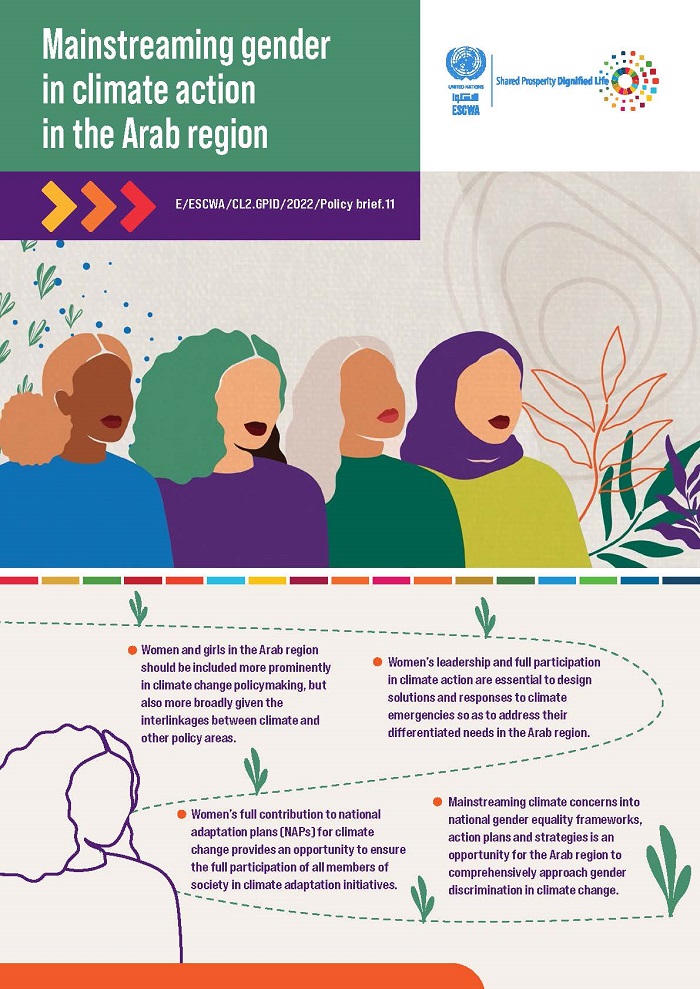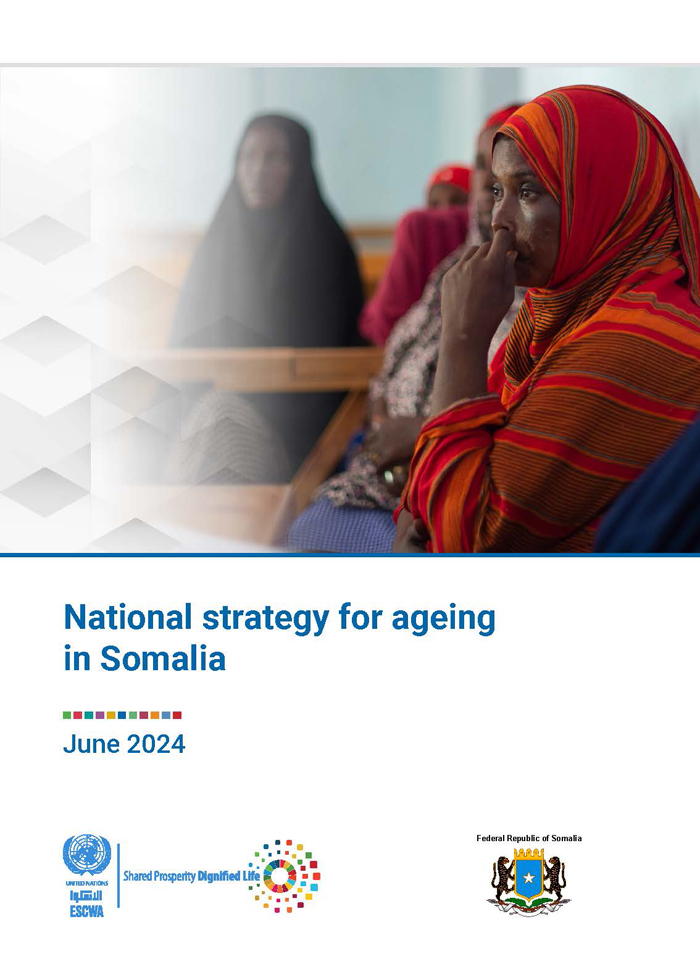
ESCWA Publication: E/ESCWA/CL2.GPID/2022/Policy brief.11
Country: Arab region
Publication Type: Policy briefs
Cluster: Gender Justice, Population and Inclusive Development
Focus Area: Climate change, Gender equality
Initiatives: Women’s rights and gender mainstreaming, Climate Resilience through Regional Cooperation
SDGs: Agenda 2030, Goal 5: Gender Equality
Keywords: Gender equality, Climate, Climate change, Gender mainstreaming, Country programmes, Women
Mainstreaming gender in climate action in the Arab region
January 2023
As extreme weather events increase in severity and frequency worldwide, climate change is a daily occurrence with real life consequences. For women in the Arab region, water scarcity, food insecurity and conflict, coupled with environmental degradation, resource scarcity and forced migration, further complicate the struggle to survive and compound the risk for increased inequality and violence. However, while women in the region play an important role in climate change responses and increasing climate resilience, their participation remains underrepresented in global and regional climate negotiations, and their solutions are drastically under-resourced.
There are two ways to remedy this is at the policy level: to mainstream gender-based concerns through NAPs on climate change, and to mainstream climate concerns within gender equality frameworks.
Related content
Climate change
, Gender equality
,
As extreme weather events increase in severity and frequency worldwide, climate change is a daily occurrence with real life consequences. For women in the Arab region, water scarcity, food insecurity and conflict, coupled with environmental degradation, resource scarcity and forced migration, further complicate the struggle to survive and compound the risk for increased inequality and violence. However, while women in the region play an important role in climate change responses and increasing climate resilience, their participation remains underrepresented in global and regional climate negotiations, and their solutions are drastically under-resourced.
There are two ways to remedy this is at the policy level: to mainstream gender-based concerns through NAPs on climate change, and to mainstream climate concerns within gender equality frameworks.



